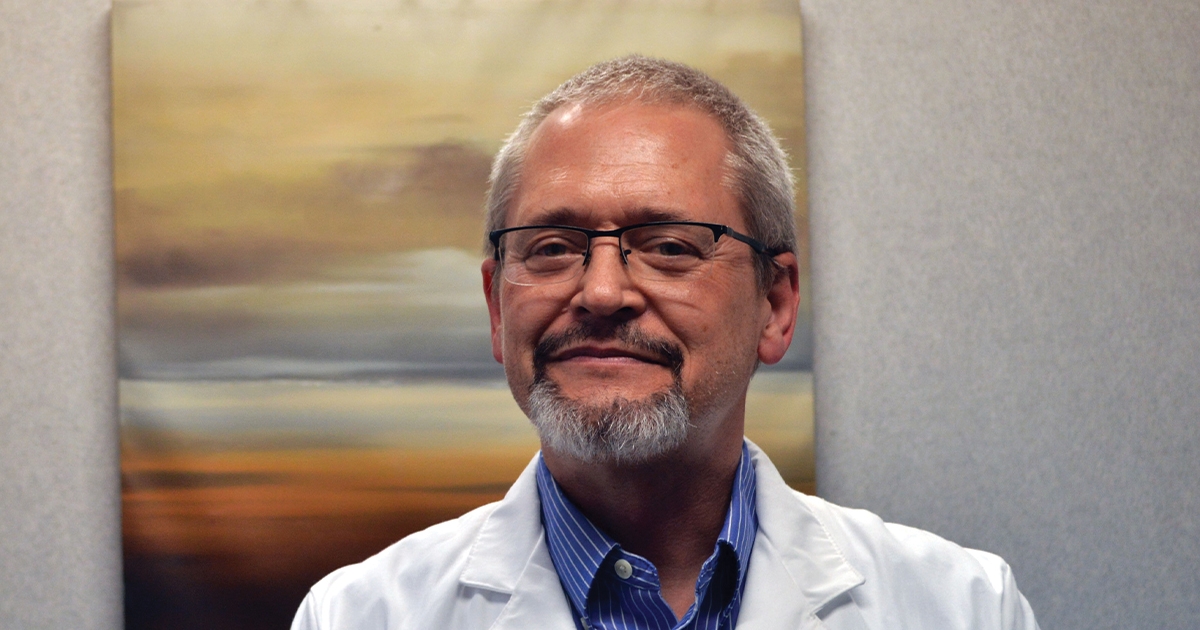The history of medical cannabis is only just beginning.
While the adult-use (a.k.a. recreational) cannabis market is taking off in Michigan, medical isn’t going anywhere. In fact, as legalization hopefully spreads across the country and world, we’ll only be able to research and learn more about its uses.
Of course, we’re not making any official medical claims here, and if anyone tells you that cannabis can cure your diseases, you likely shouldn’t trust them. But there’s no denying that weed has helped many people with pain, sleeplessness, anxiety, and other symptoms.
You can still get a “med card” to purchase medical cannabis products, and maybe you should! For the inside scoop, we turned to Dr. David Crocker of Michigan Holistic Health. Over 12 years, his program has now helped more than 50,000 people go through medical cannabis evaluations.
Crocker started as an interventional pain management specialist, primarily working in end-of-life and palliative care. After seeing many of his patients turn to cannabis, he learned just exactly to what extent the plant can help peoples’ pain and suffering.
We talked with Crocker about how to get a medical card, who should get one, and why.
You’ve seen CANNABIS help all kinds of people over the years — can you give us one example?
Some of our patients are what I call “blue collar veterans,” people that use their bodies to earn their livings for a lot of years in construction and whatever else, and they often have bad backs and shoulders and knees and so forth. They’ve gone through various types of treatment, surgery and narcotics, and eventually they come around to cannabis and discover that, “Hey you know, this works for me to have a better quality of life without all the downsides.”
Who can get a med card?
There are specific conditions the state will allow. Chronic pain is the most common, probably 85% of the patients that we see. But it’s also things like nausea, certainly people with cancer going through chemotherapy, HIV, hepatitis and various chronic diseases that can create wasting and nausea and different issues. PTSD was one of the things that we got added during the last several years, and that was huge.
So tell us what the process looks like.
We inform patients we need to get medical records that document their qualifying condition — from doctors, chiropractors, or various other practitioners. Or we can gather the records for them. I review the records and if they cross the original bar as far as what the state requires, then we set up an appointment, and they come in like any other regular doctor’s visit.
What’s that conversation look like?
We discuss cannabis and what they’re expecting out of it and if we come to the mutual conclusion we should continue, then I fill out an affidavit basically stating that I think that they could benefit for the condition that’s listed. They pay a fee to the state and there’s paperwork that has to be done for the state. Once that’s completed, the state issues the card. The cards originally were only good for a year and now they’re good for two. It’s one of the few times I’ve seen the state give up income! But they’ll come get their card renewed every other year.
With adult-use now available, why get a med card?
You don’t have to have the card. There are benefits though. For a lot of our elderly patients in particular, they’re more comfortable having a physician monitor their care. But most dispensaries, the tax rate and baseline prices are lower on medical cannabis, so there are some monetary reasons to do it as well. Most dispensaries will keep certain types of products aside for medical patients, and the testing criteria for the medical side are higher.
Some of our patients stay involved because they’re in patient caregiver networks, which only operates on the medical side. Many of our patients are professionals who want to have that medical benediction, if you will, in case they run into trouble with their employer or if they’re traveling and get caught in a compromising situation.
How can CANNABIS help, medically speaking?
Many active ingredients in cannabis mimic naturally occurring chemicals in the body that are part of what we call the endocannabinoid system. THC, for example, mimics a chemical called Anandamide. It’s what we call a modulatory neuro-lipid … and essentially, when nerve synapses activity is too high, it brings that down, and when it’s too low, anandamide brings it up. So its role is to create that happy medium balance.
I don’t know of any other medication, prescription or otherwise, that addresses the common problems these people face in a comprehensive way. People who are new to cannabis will come in for pain, for example. They’ll come back for a little follow-up with us and they’ll say, “My pain is better, but you know what? I’m also sleeping better, I’m getting along better with my spouse, and eating better.”
It tends to bring a certain type of equilibrium into people’s lives at multiple levels, unexpectedly so for a lot of them.
For more information, visit michiganholistichealth.com. See Dr. Crocker’s hemp and CBD products at Premier Hemp Company and Solutions By Dr. Dave.





